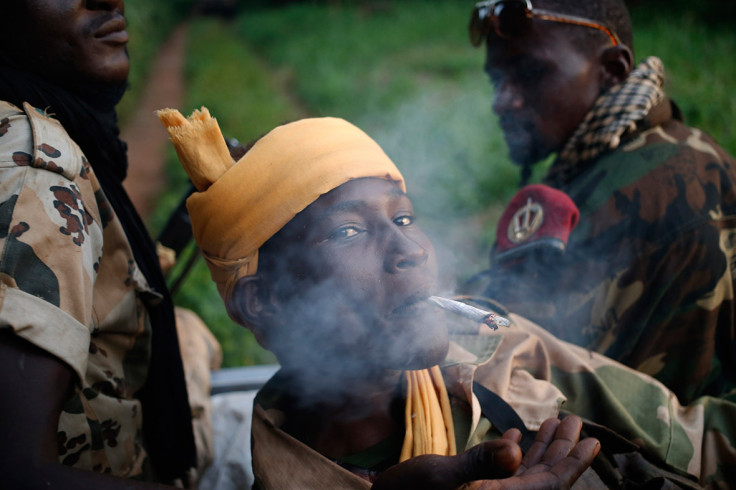Abdoulaye Hissene: The Seleka warlord still on the loose in Central African Republic
Seleka rebel forces were supposedly disbanded in 2013 but still operate under Hissene.

Impunity in the Central African Republic means that the vast majority of individuals suspected to have orchestrated or committed war crimes and crimes against humanity are still "roaming free".
After decades of violence punctuated by a fragile peace agreement, the country erupted into chaos again when Muslim rebel group Seleka toppled then-president François Bozizé's government in March 2013.
Following the coup, the existing largely Christian anti-Balaka self-protection groups organised themselves to fight against the Seleka, carrying out large-scale reprisal attacks against Muslim civilians and sparking a sectarian civil war.
The fighters from the Seleka rebel forces were supposedly disbanded in September 2013 when President Michel Djotodia, who they had helped bring to power six months earlier, banned the group.
Many of the ex-Seleka henchmen, however, continue to operate, and several of their high-profile leaders have been arrested, but none have ever been prosecuted. IBTimes UK profiles Abdoulaye Hissene, a prominent ex-Seleka chief.
Hissene is accused of having participated, or having been closely linked to businessman-turned-Muslim militia leader Haroun Gaye, with whom the United Nations and Amnesty claim he committed crimes under international law and human rights abuses.
Just months after the September 2015 outbreak of violence, armed men loyal to Hissene attacked civilians at a polling station in the PK5 district, the last Muslim enclave in the capital Bangui, during the constitutional referendum on 13 December 2015. According to Amnesty, the fighters were eventually repelled by the UN peacekeeping force in the country, MINUSCA, but the clashes left five dead and another 20 injured.
Abdoulaye Hissene continuously evades capture
As with Gaye, Hissene has been issued with summons by CAR judicial authorities to appear for questioning, but has not been subject to formal arrest warrants - mirroring an issue of coordination between MINUSCA and national authorities.
Hissene was with Gaye during the botched MINUSCA operation in August 2015, which he also escaped. Following the operation in PK5, a 16-year-old boy and his father were killed, while a 12 year-old girl was raped by the UN peacekeeping force. A peacekeeper was also killed and eight others were injured.
More recently, in March 2016, Hissene was stopped at Bangui airport and brought to the Section de Recherche et d'Investigation (SRI), Bangui's investigative police department. The ex-Seleka rebel was freed hours later after a group of heavily armed men attacked the SRI building.
In August 2016, Gaye and Hissene again escaped capture when MINUSCA intercepted their convoy as it travelled from Bangui to the northern town of Kaga-bandoro. Four days after the leader travelled towards the north of the country, a local gendarmerie raid on Hissene's Bangui residence uncovered some "700 munitions of war and weapons".
Amnesty reported that, two months later, the leader "travelled freely to Bria to attend a general assembly of ex-Seleka factions". Hissene remains at large.
© Copyright IBTimes 2024. All rights reserved.






